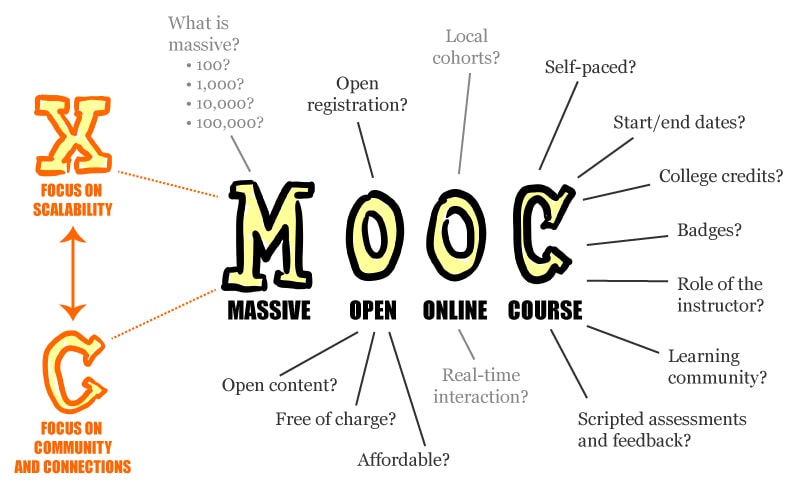Published on: 02/09/2023 · Last updated on: 02/09/2024
MOOCs – Massive Open Online Courses
According to the Oxford Dictionary, a Massive Open Online Course (or MOOC) is defined as:
“a course of study made available over the Internet without charge to a very large number of people.”
MOOCs at Bath
The MOOCs offered at Bath are delivered in conjunction with FutureLearn, a private company owned by the Global University Systems, which has partnered with Higher Education Institutions, cultural organisations and professional bodies in the UK and internationally.
The Departments and Teams involved in developing the current University of Bath MOOCs have participated for many varied reasons; some have wanted to highlight their area of research to a wider audience while others have identified a particular training or support need that their MOOC has addressed. In developing MOOCs, we have learnt many lessons that we are able to feed back into the day-to-day business of the University along with acquiring new transferable skills.
In particular, the use of video has had a notable impact; with many colleagues now much more comfortable recording and using video for short updates and quick explanations of issues to support their face-to-face delivery. We quickly learnt to keep videos short and concise – a 15-minute video simply will not hold the attention of the listener, however dynamic and exciting the presenter may be.
To date we have reached over 240,000 learners worldwide, from over 215 different countries.
Uses for MOOCs
The courses are delivered entirely online, run for between 2 and 6 weeks and have set start and end dates. They don’t usually offer any formal qualifications but can be taken to explore an interest further or to gain/reinforce knowledge in a specific area. And there are usually no entry requirements either, anyone interested, with access to the internet, can sign up.

Examples
The FutureLearn platform launched in October 2013 and Bath delivered its first course in January 2014. We currently (as of September 2023) offer the following MOOCs via FutureLearn, most are available to sign up at any time:
- Inside Cancer: How Genes influence Cancer Development
- From State Control to Remote Control: Warfare in the 21st Century
- Quality Improvement in Healthcare: the Case for Change
- Modern Building Design
- How to succeed in your EPQ: the nuts and bolts of completing your project
- How to succeed in your Welsh Bacc: the Individual Project Essentials (also available in Welsh)
- Good practice in Autism Education
- Next Generation Biosecurity: Responding to 21st Century Biorisks
- Understanding and Teaching Evolution
- An Introduction to Innovation in Healthcare
Developing a MOOC
Before deciding whether you want to develop a MOOC, speak to the TEL Team. We can run through with you the steps that need to be considered, the costs involved and the time that it all might take. If you already have an idea, you can also submit the MOOC ideas proforma.
Some of the key areas to consider include:
- Learning Design
- Technology
- Length and timing of courses
- Finance
- Marketing
- Legal/Copyright
If you decide to develop a MOOC, you’ll need to think about this in a different way to how you would normally approach developing a conventional face-to-face or blended unit. Your course will be available to a global audience and may attract hundreds or even thousands of learners. We work with FutureLearn to deliver the University’s MOOCs following a social learning model that works well with the structure of the platform. All resources produced for a MOOC can be reused in different situations, including with on-campus learners, where appropriate.
Pros & Cons
Pros
- Can promote a specific research area.
- Widening participation.
- Increasing recruitment.
- Could potentially allow for development of a ‘taster’ for specific course.
- Promotes the University on an international scale.
Cons
- Developing a MOOC can be time-consuming and can require you to ‘do things differently’, as is true when developing any online course.
Further Support
Some departments and faculties have an active academic community which support and promote the use of Technology Enhanced Learning. We recommend that you talk to your Director of Teaching and Learning and a Learning Technologist who will be able to put you in touch with another academic who can share their own experiences and offer pedagogical advice. For support from the CLT please email moocs@bath.ac.uk.